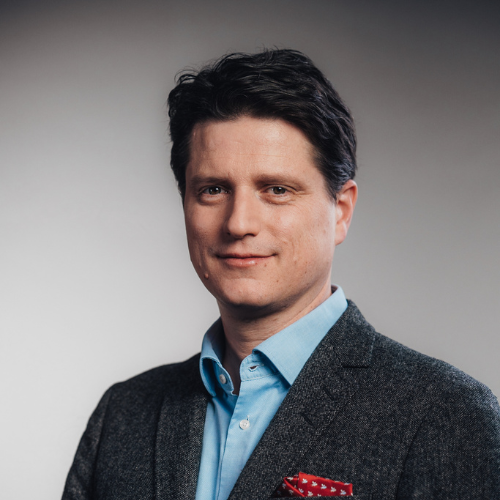Luc Decker is Deputy Chief of Staff at the Ministry of the Economy and a candidate in the Municipal Elections.
AMCHAM: Please introduce yourself to our members so they better understand your background and your political commitment.
Luc Decker: Paul, we first met nearly 20 years ago when the Ministry of the Economy freshly hired me. Before that, I studied political science in Paris and represented Luxembourg as a swimmer at international competitions, including the Olympic Games in Sydney in 2000. When we met, I was covering the US and Chinese markets for our Trade and Investment team. Later, I had the chance to represent Luxembourg in Shanghai as Consul general before joining the office of the Minister of the Economy Franz Fayot as Deputy Chief of staff in 2020. As a civil servant, I have always been driven by the public good and trying to have the greatest positive impact on the citizens of my country. That naturally led me to my political commitment outside the office. For me, it has always been important to ensure a thriving economy to make sure the State can afford to care for the well-being of its citizens. I also believe that the transition to a sustainable economy can only be achieved if it is socially just and people adhere to it. This is why I ran for elections in 2009 and 2011, and am running again this year for the LSAP.
You are running for municipal elections in the city of Luxembourg, where 71% of residents are foreigners and only 16% of them registered to vote. Is this because foreigners are more interested in national than local politics?
Unfortunately, non-Luxembourgers are not allowed to vote for national elections. I have been campaigning for that right, but a referendum rejected the idea in 2015. For municipal elections, the law changed recently and the conditions to register do not require 5 years of residence anymore. In my eyes, municipal elections are of great importance for the livelihood of your community. Your commune can be an important actor for affordable housing, mobility, commerce and urban development including schools, green areas etc.
You mention affordable housing: what can and should the municipality do regarding the high cost of living accommodations for both individuals and families?
The number one measure we propose in our program is that the City should invest 100 million each year into affordable housing in order to create 2000 accommodations by 2030. There is a construction crisis brewing and the sector is seeking investors for projects that are ready to be built. The City of Luxembourg has budgetary reserves of more than one billion Euro! DP and CSV are at the helm of the city since over 50 years and they managed to build 620 social accommodations only.
Even though Luxembourg remains a safe place, there is an unexpected extend of risk of crime, vagrancy and drug trafficking in urban areas. Other parties favor the creation of a municipal police. Is that a good idea?
People have a right to feel secure in the city of Luxembourg. But, I would like to stress that you cannot put homelessness or vagrancy at the same level as crime or drug trafficking. For the former, you need to put social measures in place and help these people, not criminalize them by banning them from the city center. For the latter, you need more police on the ground. And, for petty incivilities, you need municipal agents on the streets.
Until 2000, Luxembourg had a (municipal) police and a (national) “gendarmerie”. The law of 1999 that enacted the merger of both into a national police force was signed by then Justice Minister Luc Frieden and then Minister of Home Affairs Michel Wolter. Both are members of the CSV, which is now campaigning in favor of a reintroduction of two police forces. It seems a bit opportunistic to me and I do not see how having two competing police forces would save the problem. A law passed last year gives municipal agents (not a police force) additional powers to fight incivilities. The city should recruit, train and deploy more of these agents to make people feel safer.
Finally, I would like to ask the economic expert that you are what the City of Luxembourg can do for economic development.
For the municipal elections in 2011, I proposed that the City should develop its own incubator. LSAP did not make it into the ruling coalition, but the Luxembourg City Incubator was launched in 2017. In 2023, if we make it, we will develop and implement a commercial development strategy and use the commercial space owned by the City or rent additional space to complete the existing commercial offer where necessary and encourage young entrepreneurs to launch their business.
In general, Luxembourg City needs to be able to attract talent, which is why livelihood, good schools, well organized mobility for everyone and affordable housing matter so much. And that is why municipal elections matter.

